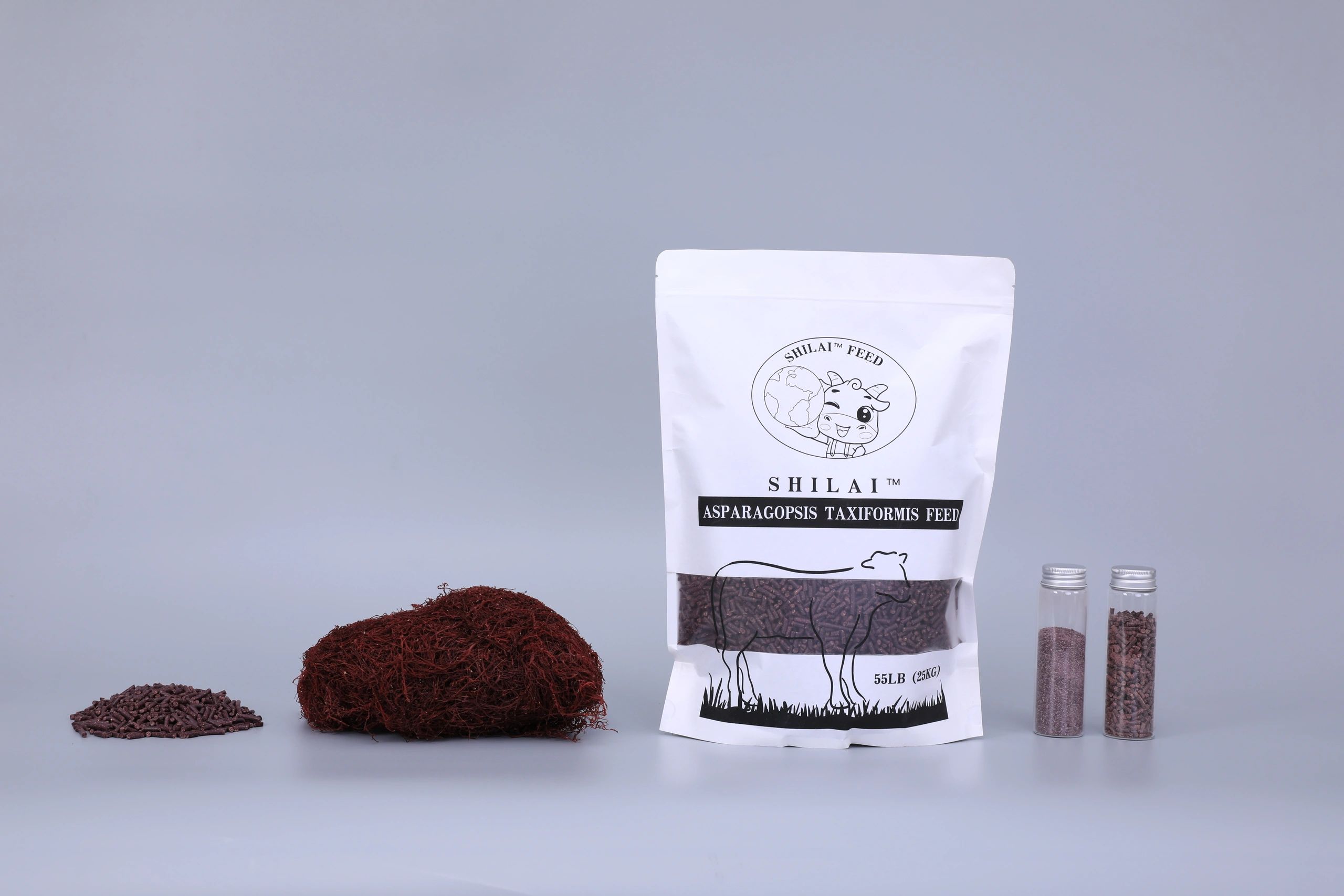
Worldwide agriculture accounts for a significant portion of greenhouse gases, with livestock as a chief contributor.
The climate impact of methane surpasses that of carbon dioxide on a per-molecule basis, underscoring the urgency to reduce it.
Interest is growing in Asparagopsis taxiformis, a red seaweed, for its potential to substantially cut enteric methane in ruminants.
A distinctive compound present in the alga curbs methanogenic activity in the rumen and reduces emitted methane volumes.
Blending Asparagopsis taxiformis into animal feeds has shown experimental success, suggesting an actionable strategy to shrink the carbon footprint of animal farming.
- Moreover, Asparagopsis taxiformis offers several additional commercial and environmental advantages.
- Enhanced nutritional value for livestock
- Chance to build circular supply chains around seaweed production
Continued study and commercial testing are required, however Asparagopsis taxiformis could be a transformative sustainable solution.
Tapping the Value of Asparagopsis taxiformis Powder for Livestock Diets
Asparagopsis taxiformis powder or extract could transform animal nutrition and feed strategies across livestock sectors.
This marine plant contains bioactive and nutritional traits that can enhance livestock performance and productivity.
Including A. taxiformis powder in diets has demonstrated methane-reducing effects in trials and can deliver essential dietary elements.
Expanded experimental work is required to refine inclusion levels, manufacturing approaches, and comprehensive safety data.
Asparagopsis taxiformis: Toward More Sustainable Livestock Systems
Asparagopsis taxiformis has come to prominence as a candidate solution for environmental concerns in animal agriculture.
Adding the seaweed to rations may deliver substantial methane mitigation and reduce farms’ overall climate impacts.
Research suggests the seaweed can additionally support better animal health and production performance under certain conditions.
Broader and longer studies are essential for confirmation, although early evidence is strongly positive.
Asparagopsis-Based Feed Supplements for Methane Cuts
Asparagopsis species have emerged as a promising avenue for lowering methane emissions from ruminant animals.
The mechanism involves the seaweed’s compounds blocking or inhibiting the microbes that produce methane in the rumen.
- Experimental studies have reported large percentage reductions in methane when Asparagopsis is included in diets.
- Using the seaweed in feed formulations is a sustainable pathway to cut enteric methane emissions.
- Farming operations are starting pilot projects to assess the adoption of Asparagopsis in feeds.
Asparagopsis: Revolutionizing Methane Management in Livestock Farming
Asparagopsis taxiformis represents a marine solution that could help transform how methane is managed in livestock systems.
- Studies incorporating Asparagopsis have recorded meaningful methane decreases, signaling potential for environmental impact reduction.
- This advancement could support sustainable food systems by reducing emissions without compromising animal nutrition.
As climate policy and industry responses develop, Asparagopsis offers a promising option to reduce livestock methane emissions.
Refining Asparagopsis taxiformis Feed Strategies to Improve Methane Reduction
Work is underway to determine optimal processing methods and inclusion rates to enhance A. taxiformis effectiveness.
The Science Behind Asparagopsis taxiformis's Methane-Lowering Effects
The scientific explanation centers on the seaweed’s bioactives inhibiting methanogenic archaea and thereby lowering methane output.
Bromoform and analogous molecules in the algae are believed to block methanogenesis, and research is clarifying efficacy and safety considerations.
Blending Asparagopsis into Diets for More Sustainable Farming
Asparagopsis offers both nutritive value and active molecules that together justify its consideration for feed formulations.
Feed inclusion can provide animals with extra amino acids and micronutrients, enhance gut function, and offer antimicrobial benefits.
A Sustainable Future Built on Asparagopsis taxiformis
Asparagopsis taxiformis offers a natural pathway to mitigate climate impacts associated with livestock and contribute to sustainable food systems.
- In addition, the seaweed contributes essential nutrients and beneficial compounds to diets.
- Researchers and practitioners are investigating diverse applications of the species across farming and food industries.
Integrating Asparagopsis taxiformis into existing practices could produce meaningful reductions in the environmental impacts of agricultural activities.
How Asparagopsis Feed Additives Can Improve Animal Health and Performance
Asparagopsis is attracting interest as a supplement that can lower methane and concurrently bolster animal health and efficiency.
Studies report improvements in nutrient uptake and feed efficiency when Asparagopsis is integrated into rations, aiding growth.
Supplementation may confer antioxidant or immune benefits that bolster animal defenses and reduce susceptibility to illness.

Increasing focus on sustainable production makes Asparagopsis a compelling candidate as evidence and supply chains mature.
Asparagopsis in Methane-Cut Feeds to Help Achieve Carbon Goals
Agriculture is under increasing demand to cut emissions, and Asparagopsis represents a practical route to reduce methane contributions.
- Experts propose that active compounds in the algae block key microbial pathways that produce methane in the rumen.
- Trials and experiments have produced promising results, showing substantial methane reductions when Asparagopsis is included in diets.
Adopting this approach may offer a twofold benefit: greener feed and a pathway to transform agricultural emissions performance.